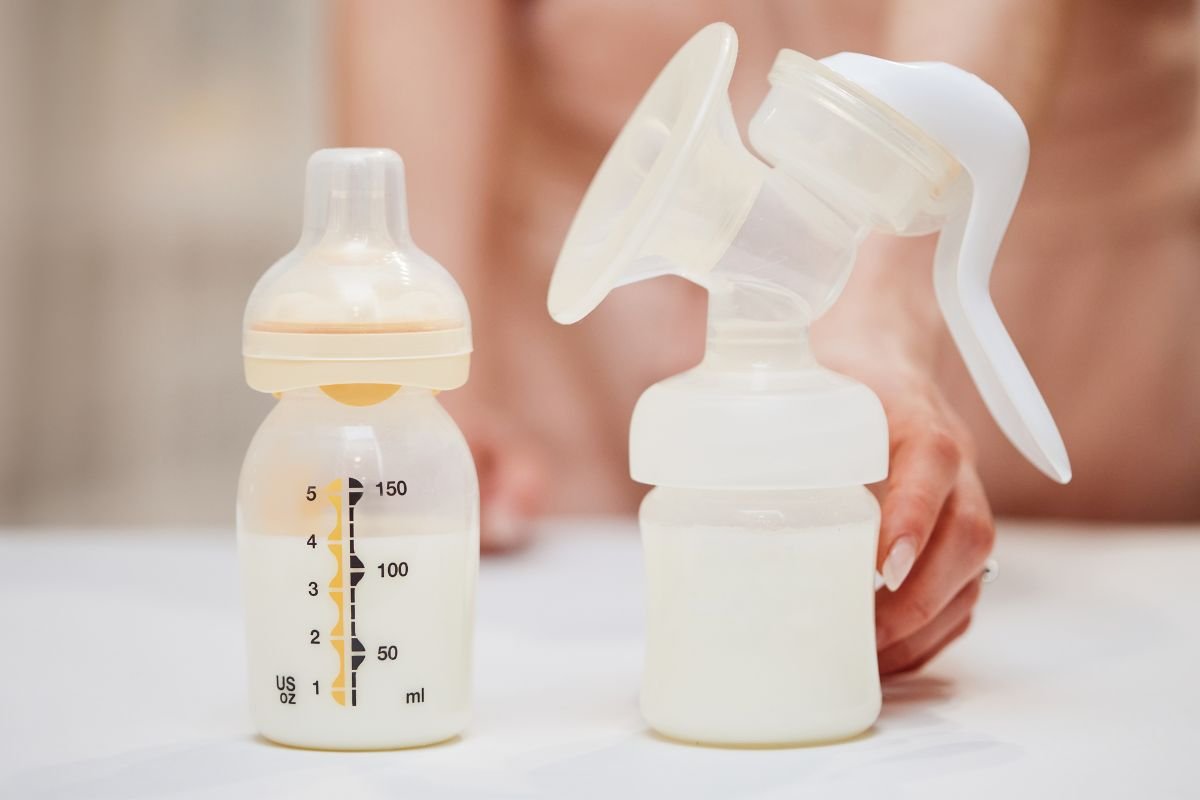Breast milk is a precious source of nutrition for infants, providing essential nutrients and antibodies for their healthy growth and development. As a nursing mother, it is crucial to understand the proper storage and handling of breast milk to ensure its safety and quality.
One common question that arises is: How long is refrigerated breast milk good for? In this article, we will delve into this topic and provide you with the necessary information to confidently store and use refrigerated breast milk.
Table of Contents
Guidelines for Storing Breast Milk
Proper storage of breast milk is important to ensure that it stays fresh and safe for your baby to consume. Here are some guidelines for storing breast milk:
Temperature Levels for Refrigerated Breast Milk
Refrigerated breast milk should be stored at a temperature of 40°F (4°C) or lower. It is important to note that breast milk should not be stored in the refrigerator door, as the temperature can fluctuate frequently. Instead, store breast milk in the back of the refrigerator where the temperature is more consistent.
Recommended Storage Containers for Breast Milk
Breast milk should be stored in clean containers that are specifically designed for storing breast milk. These containers can be made of glass, plastic, or bags. It is important to ensure that the containers are BPA-free and have tight-fitting lids to prevent leaks and contamination.
When filling the containers, it is important to leave some space at the top as the milk will expand when frozen. Also, it is recommended to label the containers with the date the milk was expressed to ensure that the oldest milk is used first.
It is important to note that breast milk can be stored at room temperature, in the refrigerator, or in the freezer for different lengths of time. For more information on storage guidelines, refer to the CDC’s guidelines for handling and storing breast milk.
Overall, following these guidelines will help ensure that your breast milk stays fresh and safe for your baby to consume.
Shelf Life of Refrigerated Breast Milk
Refrigerated breast milk is a valuable source of nutrients for babies, providing them with all the necessary vitamins and minerals for their growth and development. However, it’s important to know how long the milk can stay fresh to ensure the baby’s safety and health.
Freshly Expressed Breast Milk
Freshly expressed breast milk can last up to four days when stored in the refrigerator at a temperature of 39°F (4°C) or lower. It’s important to store the milk in a clean, sealed container to prevent contamination.
If you’re using breast milk storage bags, make sure they’re specifically designed for storing breast milk and are leak-proof. Avoid using regular plastic bags or bottles, as they may not be sterile and can cause the milk to spoil quickly.
Thawed Breast Milk
Thawed breast milk should be used within 24 hours after it’s been thawed in the refrigerator. It’s important to note that once you thaw the breast milk, you should not refreeze it.
To thaw breast milk, place the container in the refrigerator for several hours, or hold it under warm running water until it reaches room temperature. Avoid using a microwave to thaw breast milk, as it can destroy the nutrients and cause hot spots that can burn the baby’s mouth.
Breast Milk Previously Frozen then Thawed
If you’ve previously frozen breast milk and then thawed it in the refrigerator, it can last up to 24 hours. However, if you’ve thawed the milk using warm running water or a microwave, it should be used immediately or discarded if it’s not used within one hour.
It’s important to label the breast milk containers with the date that the milk was expressed and stored, to ensure that you’re using the oldest milk first.
In conclusion, understanding the shelf life of refrigerated breast milk is essential for ensuring your baby’s safety and health. By following these guidelines, you can ensure that your baby is getting the best possible nutrition from your breast milk. For more information on breastfeeding and breast milk storage, check out the CDC’s breastfeeding website.
Factors Affecting the Quality of Refrigerated Breast Milk
While adhering to the guidelines for storing breast milk is crucial, it’s important to note that various factors can impact the quality of refrigerated breast milk. Understanding these factors can help ensure that your baby receives the freshest, most nutritious milk possible. Some factors affecting the quality of stored breast milk include:
Mother’s Diet
The foods a mother consumes can directly affect the taste and nutritional content of her breast milk. Consuming a balanced and healthy diet, rich in fruits, vegetables, whole grains, lean proteins, and healthy fats, can help promote a higher quality breast milk. It’s important for nursing mothers to stay well-hydrated and avoid excessive caffeine, alcohol, or other substances that may negatively affect breast milk quality.
Environmental Factors
Environmental factors, such as exposure to light, air, and temperature fluctuations, can impact the quality of stored breast milk. When possible, store breast milk in opaque containers, as light can break down some of the milk’s nutrients. Be sure to place the containers in the back of the refrigerator where the temperature remains consistent, and avoid storing milk in the refrigerator door.
Storage Duration
As time passes, the nutritional content of stored breast milk may decline, even when properly refrigerated. To maximize the nutritional value of breast milk for your baby, it’s best to use refrigerated milk within four days. However, if this is not possible, follow the CDC’s guidelines for freezing and thawing breast milk, keeping in mind that frozen milk may have slightly reduced nutritional value compared to fresh milk.
Benefits of Refrigerated Breast Milk Over Formula
While formula can provide a convenient alternative for feeding babies, refrigerated breast milk offers numerous advantages over formula. Some of the benefits of refrigerated breast milk include:
Optimal Nutrition
Breast milk is uniquely tailored to meet the nutritional needs of a growing baby, providing the perfect balance of proteins, fats, vitamins, and minerals. Although refrigerated breast milk may lose some of its nutritional value over time, it still offers more comprehensive nutrition than formula.
Immune System Support
Breast milk contains antibodies, enzymes, and immune-boosting substances that help protect babies from infections and illnesses. While refrigerated breast milk may have slightly lower levels of these substances compared to fresh milk, it still provides valuable immune support for growing babies.
Digestibility
Breast milk is easier for babies to digest than formula, as it contains proteins and fats that are more easily broken down and absorbed. This can help prevent digestive issues, such as constipation or gas, in your baby.
Bonding and Emotional Benefits
Feeding your baby breast milk, even if it’s stored and refrigerated, can help maintain the emotional bond between mother and child. The act of breastfeeding or bottle-feeding breast milk fosters a sense of closeness and attachment, providing emotional benefits for both baby and mother.
Signs that Breast Milk has Spoiled
As a breastfeeding mother, you want to make sure that your baby is getting the best quality milk possible. It is important to be aware of the signs that breast milk has spoiled so that you can avoid feeding it to your baby. Here are some of the most common signs that breast milk has gone bad:
Visual Signs
One of the easiest ways to tell if breast milk has spoiled is by checking its appearance. Spoiled breast milk may look clumpy, lumpy, or even curdled. It may also appear yellow or brown in color, which is a sign that it has oxidized.
Smell
Another way to tell if breast milk has gone bad is by smelling it. Spoiled breast milk may have a sour or rancid odor. If it smells off or unpleasant, it is best to discard it.
Taste
The final way to tell if breast milk has spoiled is by tasting it. While it may not be the most pleasant experience, it can give you an idea of whether the milk is still good. Spoiled breast milk may taste sour or metallic, or have an off-putting flavor. If it does not taste fresh, it is best to throw it away.
It is important to note that breast milk may have a different taste depending on what you eat. Spicy or strongly flavored foods can change the taste of breast milk, but it does not necessarily mean that it is spoiled.
Remember, if you are ever unsure about whether breast milk is still good, it is better to err on the side of caution and throw it away. Your baby’s health is too important to take any chances.
Tips for Handling Breast Milk Safely
As a nursing mother, it is essential to practice proper breast milk handling techniques to ensure the safety of your baby. Here are two critical tips to keep in mind:
Washing Hands and Pumping Equipment
Before expressing your breast milk, always make sure to wash your hands thoroughly with soap and water for at least 20 seconds. This simple step can help prevent the spread of harmful bacteria that may be present on your hands.
It is also important to ensure that your pumping equipment is clean and washed after each use. Follow the instructions provided with your breast pump to ensure proper cleaning and disinfection. Additionally, it is recommended that you clean and sanitize your pump parts and bottles every day if you use them frequently.
Labeling Breast Milk Containers
After expressing your breast milk, it is important to label the containers clearly with the date and time that the milk was expressed. This information can help you keep track of how long the milk has been stored and ensure that you use the oldest milk first.
It is also recommended that you use airtight containers specifically designed for storing breast milk to help prevent contamination. Avoid using regular plastic bags, as they may not be sterile.
Remember, proper handling of breast milk is crucial to keep your baby safe and healthy. Follow these tips to ensure that you are taking the necessary precautions to protect your little one.
Conclusion
Refrigerated breast milk can be safely stored for up to four days, provided it is kept at the ideal temperature of 39°F (4°C) or colder. Mothers should ensure that the milk is stored in a clean, airtight container, and placed in the back of the refrigerator to prevent temperature fluctuations.
When the time comes to use the stored milk, it is essential to follow proper thawing and heating procedures to maintain the milk’s quality and nutritional value. Additionally, always remember to discard any leftover milk that has been heated and not consumed within two hours.
By adhering to these guidelines, mothers can ensure that their babies continue to benefit from the essential nutrients present in breast milk, even when consuming it at a later time.



